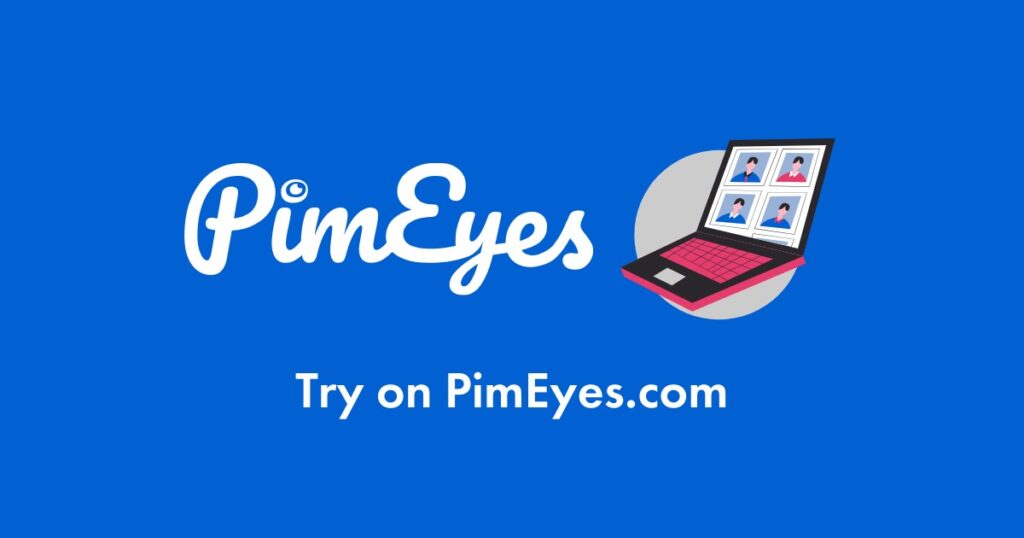PimEyes is a search engine that scans your face and finds images of you or similar-looking people on the internet. This may sound like a fun and harmless tool, but it poses serious threats to your privacy and security. In this article, we will explain why PimEyes is dangerous and how you can protect yourself from it.
The Dangers of Facial Recognition Technology
Facial recognition technology is the ability to identify or verify a person’s identity based on their facial features. It has many applications, such as unlocking your phone, tagging your friends on social media, or verifying your identity at airports. However, it also has many drawbacks, such as:
- It can be used for surveillance and tracking by governments, corporations, or criminals.
- It can be used for discrimination and bias based on your race, gender, age, or other characteristics.
- It can be used for identity theft and fraud by impersonating you or accessing your personal information.
- It can be used for harassment and stalking by finding your location, contacts, or online activities.
PimEyes is one example of how facial recognition technology can be misused and abused by anyone with access to the internet.
PimEyes: A Face Search Engine Anyone Can Use
PimEyes is a Polish company that claims to be “the most advanced face recognition search engine”. It allows anyone to upload a photo of a face and find other images of the same or similar-looking person on the internet. It claims to have over 900 million faces in its database, which it collects from various sources, such as websites, blogs, social media, or public records.
PimEyes is not the only face search engine available, but it is one of the most accessible and accurate ones. Unlike other services, such as Google Images or TinEye, which only search for exact matches of the uploaded image, PimEyes uses artificial intelligence to analyze the facial features and find similar matches. It also allows users to filter the results by age, gender, or website.
PimEyes’ Accuracy and Accessibility
PimEyes claims to have a high accuracy rate of finding faces, even if the uploaded image is low-quality, blurry, or partially obscured. It also claims to be able to find faces that have changed over time, such as aging, weight loss, or plastic surgery. However, these claims are not verified by independent sources, and the accuracy may vary depending on the image quality and the availability of data.
PimEyes is also very accessible, as anyone can use it for free without registration or verification. The free version allows users to upload up to 25 images per day and see up to 25 results per image. However, for a monthly fee, users can upgrade to a premium version, which allows them to upload unlimited images, see unlimited results, and access more features, such as alerts, filters, and analytics.
Privacy Concerns with PimEyes
PimEyes poses serious privacy concerns for anyone who has their face online, whether they are aware of it or not. By using PimEyes, anyone can find out information about you or your online activities, such as:
- Your name, address, phone number, email, or social media accounts.
- Your family, friends, colleagues, or acquaintances.
- Your hobbies, interests, preferences, or opinions.
- Your location, movements, or travel history.
- Your personal, professional, or financial status.
This information can be used for malicious purposes, such as:
- Identity theft and fraud: Someone can use your personal information to access your accounts, apply for loans, or make purchases in your name.
- Harassment and stalking: Someone can use your location or contacts to follow you, contact you, or threaten you.
- Blackmail and extortion: Someone can use your sensitive or compromising information to coerce you into doing something or paying money.
- Discrimination and bias: Someone can use your characteristics to judge you, exclude you, or harm you.
How PimEyes Works
PimEyes works by using artificial intelligence to compare the uploaded image with the images in its database. It uses a technique called face embedding, which converts the facial features into a numerical vector. It then calculates the similarity between the vectors and ranks the results by the highest score.
PimEyes does not store the uploaded images, but it does store the face embeddings and the metadata of the results, such as the URL, the date, and the website. It also uses cookies and other tracking technologies to collect information about the users, such as their IP address, browser, device, or location.
PimEyes claims to respect the privacy and data protection laws of the European Union, where it is based. It also claims to allow users to request the removal of their images from its database, by providing proof of identity and ownership. However, these claims are not verified by independent sources, and the removal process may be complicated and ineffective.
Protecting Your Privacy
The best way to protect your privacy from PimEyes is to prevent your face from being online in the first place. However, this may not be possible or practical for everyone, as many people use online platforms for personal or professional purposes. Therefore, here are some tips to reduce the risk of your face being found by PimEyes:
- Limit the amount and the quality of your face images online. Avoid posting or sharing high-resolution, clear, or recent images of your face. Use low-quality, blurry, or old images instead. Alternatively, use filters, stickers, or masks to obscure or alter your face.
- Limit the access and the distribution of your face images online. Use privacy settings, passwords, or encryption to restrict who can see or download your face images. Avoid using public or unsecured platforms, such as websites, blogs, or social media. Delete or remove your face images from platforms that you no longer use or trust.
- Monitor and control the use of your face images online. Use reverse image search tools, such as Google Images or TinEye, to find out where your face images are online. Request or report the removal of your face images from platforms that violate your privacy or rights. Use tools, such as PimEyes, to find out if your face images are being misused or abused by others.
Recent Updates and Controversies Surrounding PimEyes
PimEyes has been the subject of several updates and controversies in recent years, as it has attracted the attention and criticism of various stakeholders, such as media, researchers, activists, or regulators. Some of the notable events are:
- Block on Searches for Minors: In June 2021, PimEyes announced that it had blocked the searches for minors, after a report by The New York Times revealed that it could be used to find and exploit children online. PimEyes claimed that it had implemented an age verification system, which would prevent users from uploading or searching for images of people under 18 years old. However, the effectiveness and reliability of this system are questionable, as it relies on the users’ honesty and the accuracy of the artificial intelligence.
- Comparison to Other Facial Recognition Services: In July 2021, PimEyes published a blog post, in which it compared itself to other facial recognition services, such as Clearview AI, FaceApp, or Facebook. PimEyes claimed that it was more ethical and transparent than its competitors, as it did not sell or share its data with third parties, did not use biometric data for identification, and did not violate any laws or regulations. However, these claims are disputed by many experts and advocates, who argue that PimEyes is still invasive and harmful to the privacy and rights of the people.
Conclusion
PimEyes is a search engine that scans your face and finds images of you or similar-looking people on the internet. It may seem like a fun and harmless tool, but it poses serious threats to your privacy and security. By using PimEyes, anyone can find out information about you or your online activities, and use it for malicious purposes. Therefore, you should be aware of the dangers of PimEyes and take steps to protect yourself from it.








